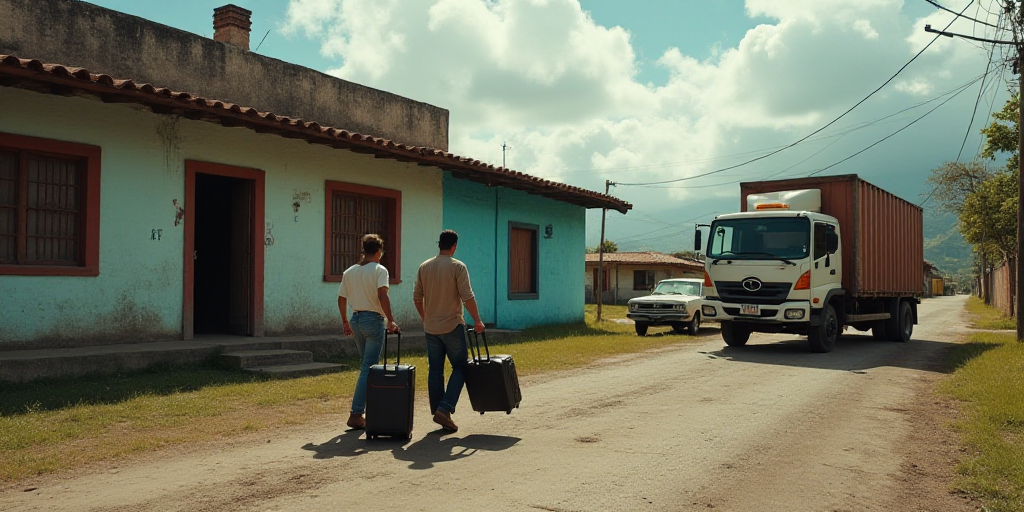Background on the Migrants and the U.S. Policy
The United States, under President Donald Trump’s administration, has implemented strict measures to curb migration. As part of this effort, the “Home to Home” project was launched on May 9, encouraging undocumented immigrants to “self-deport” voluntarily with financial assistance from the federal government.
The “Home to Home” Project
This project presents migrants with a choice: leave the U.S. voluntarily, supported by financial aid from the federal government, or face consequences such as expulsion, prosecution, incarceration, fines, wage garnishment, and seizure of personal assets including homes and vehicles.
First Flight of “Self-Deportees”
On Monday, the Department of Homeland Security (DHS) reported that the first charter flight under the “Home to Home” project took place, transporting 64 individuals who chose to self-deport to their countries of origin: Honduras and Colombia.
Homeland Security Secretary Kirstjen Nielsen stated, “Today, DHS conducted its first ‘Home to Home’ charter flight with 64 individuals who voluntarily decided to self-deport to their home countries of Honduras and Colombia.”
Support for Migrants
Each migrant received travel assistance, $1,000, and retains the possibility of legally returning to the U.S. in the future, according to DHS.
In Honduras, 38 self-deportees were greeted at San Pedro Sula Airport by government officials and representatives from the National Migration Institute. They each received $200 in cash and a food voucher.
Wilson Sáenz, a 22-year-old Honduran, explained to AFP that he had left Puerto Cortés in search of better living conditions and found occasional work in construction in Texas. He chose self-deportation due to a lack of job opportunities but plans to apply for a U.S. visa to return legally.
Iris Díaz, a 32-year-old mother of two from Honduras, also decided to self-deport after her husband was deported. Her father, Ernesto Díaz, explained that she felt compelled to return due to her newfound solitude.
Support in Colombia
In Colombia, the 26 self-deportees will receive social services, as reported by DHS.
Key Questions and Answers
- What is the “Home to Home” project? It’s a U.S. initiative that encourages undocumented immigrants to leave voluntarily with financial assistance, as an alternative to traditional deportation methods.
- Who are the migrants involved in this project? The migrants are individuals from Honduras and Colombia who have chosen to self-deport with the support of the U.S. government.
- What support do migrants receive during self-deportation? Migrants receive travel assistance, $1,000, and the possibility of legally returning to the U.S. in the future.
- What happens to the migrants upon arrival in their home countries? In Honduras, migrants receive cash and food vouchers. In Colombia, they will have access to social services.






